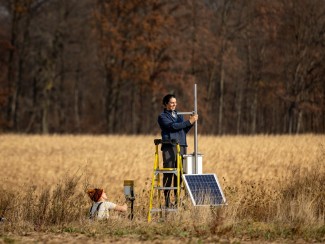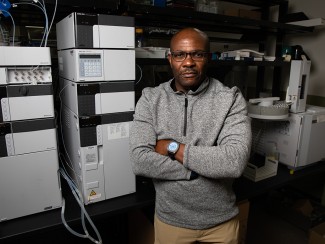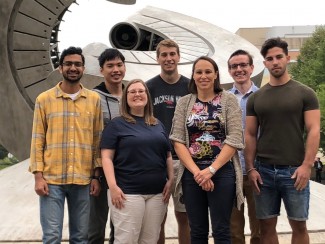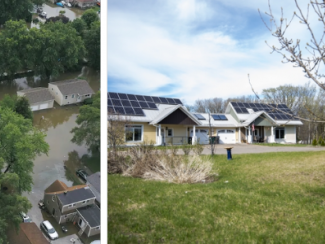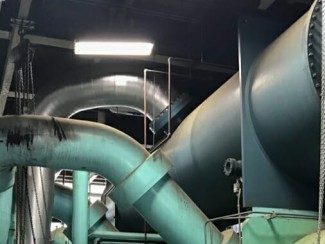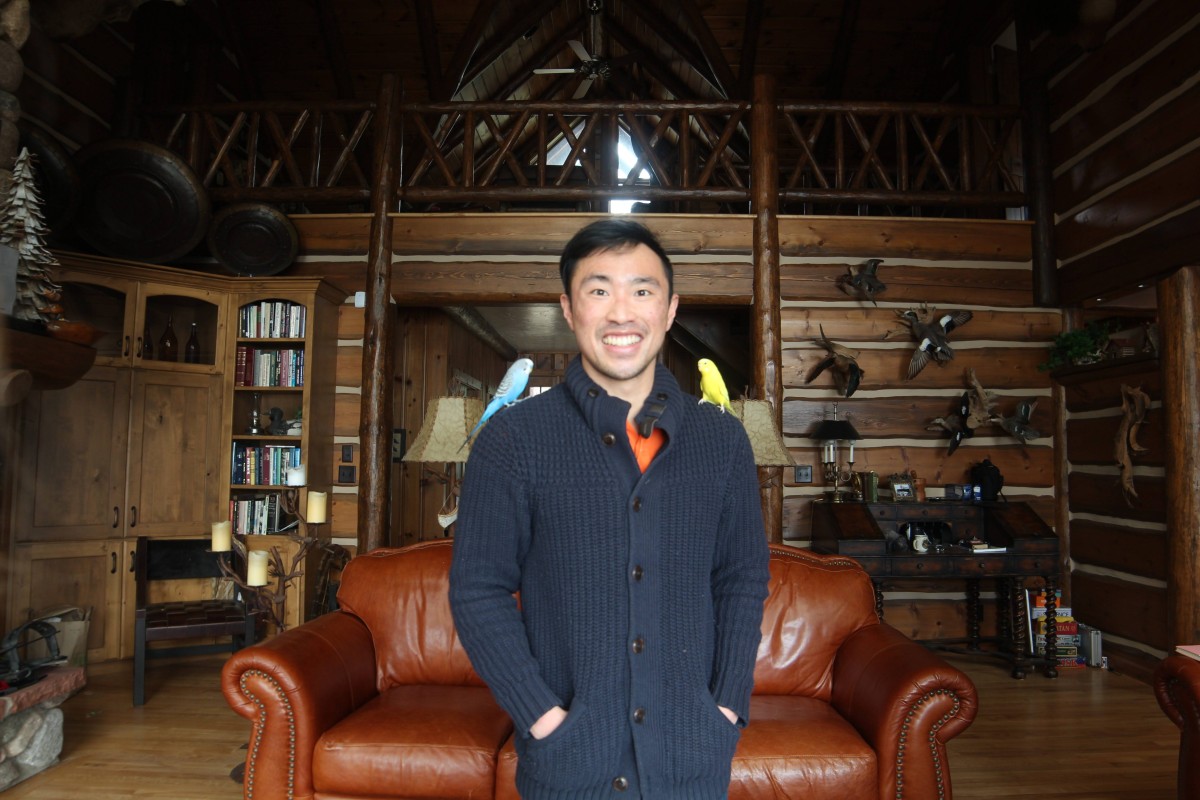
Our graduate students and postdoctoral researchers play an enormous role in the transition to a sustainable, resilient, and affordable energy future that is centered on social and economic equality. From lab experiments to field work to classrooms, these leaders of today and tomorrow are our catalysts for energy discovery.
In this series, we learn more about what inspired these talented researchers, what brought them to their field of study, and the questions that drive their work at the Wisconsin Energy Institute.
This week we spoke with Derek Ho, a graduate research assistant in Troy Runge’s lab at the University of Wisconsin–Madison. Derek is from Singapore and studied biological systems engineering for both his undergraduate and master’s degrees at UW–Madison. He is now pursuing his doctorate in the same field.
What brought you to UW–Madison and the Wisconsin Energy Institute?
My sister, who was a fellow Badger, nudged me to choose UW over every other school. During my junior year, I was lucky enough to conduct some research on applying white rot fungus to treat biomass and that really hooked me because I am a pretty fun-guy.
What is one thing that surprised you about UW, Madison, or Wisconsin?
The one thing that surprised me is the Midwestern charm. Its authentic, down-to-earth, and friendly!
Can you tell me about your research in a way that you would describe to friends or family?
I research microplastics within wastewater treatments systems and their eventual fate and removal from agricultural soil. This is a burgeoning issue, as plastics are ubiquitous and the way they are currently being disposed of in the form of fertilizers could cause serious implications for the health of our crops. Presently, I am trying to develop a method that could both quantify and qualitatively analyze microplastics, which are defined as plastics smaller than 5mm.
"As an observant photographer, I have witnessed the devastation that plastics have caused to the environment, which makes it extremely difficult to turn a blind eye to this issue. So, I decided to focus my graduate studies towards the remediation of this problem."
Derek Ho
What do you hope to accomplish after your time at UW-Madison and the Wisconsin Energy Institute?
I hope to become a professor that specializes in environmental remediation and become an advocate for a truly sustainable environmentally friendly circular economy.
What is your favorite memory at the Wisconsin Energy Institute so far?
With the help from the science outreach coordinator, Allison Bender, I designed a tabletop activity that showcase the different processes that plastics has to undergo in a wastewater treatment facility and their eventual fate. It was extremely fulfilling explaining to children aged four and up about what happens to the plastics that we dispose of. The questions from the kids were more difficult than the questions from the adults.
What is one thing you have experienced that no one else you know has done?
I spent fourteen hours turning plastics into microplastics by supercooling it with liquid nitrogen. This inadvertently meant that I became my worst enemy by creating microplastics to solve the microplastic problem.
What has been the most difficult part of working as a researcher during the COVID-19 pandemic?
The most difficult part of working as a researcher during the pandemic is the decrease in spontaneous inspirations and ideas that come from conversing with other researchers in similar fields. I find these moments invaluable as they make us think beyond ourselves as well as foster the collaborations that are needed to tackle such a behemoth topic.
On the other hand, what has been the most interesting, fun, or useful part of working as a researcher during the pandemic?
The pandemic has given me a lot more independence in my thoughts. This downtime has really allowed me to explore rabbit holes without much reservation, resulting in a more expanded yet intentional focus in my work.
What do you do when you’re not working?
I am a jack of all trades and love: bouldering, tennis, sailing, marathon running, swimming, cooking, photography and art.
What is one fun fact about yourself?
I am a bird daddy! I will soon have a cockatiel to accompany my parakeet, Bloo. Together, they will be called Pika – Bloo. Bloo was also the inspiration for my photography website www.allthingsblootiful.com.

